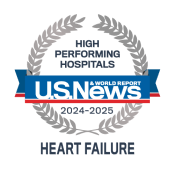Tips for Caregivers

Taking care of your health includes keep track of your medical information and having a plan for future care. Family members and caregivers can help you develop and enact your healthy care plans and advocate for you during a health emergency.
Having the right information about yourself or loved one's health could save lives.
Use the following list to make sure you have necessary information and documents should an emergency arise.
Emergency Medical Information
- Contact Information for all Health Care Providers – Keep the names and phone numbers of doctors and specialists, including primary care physicians and cardiologists, on hand.
- Current Medications and Allergy List – Have a list of current medications to help doctors address issues related to medications you are taking and risks associated with drug–drug interactions. Remember to include supplements on this list, even herbal treatments. Also keep a list of food or individual drug allergies.
- Medical Histories, Including Personal Lifestyle – Keep a list of medical conditions, past surgeries and major medical procedures. Doctors use this information to make decisions about possible future medical procedures and treatment options.
- Medical Records Access – Sign a form that allows their doctors and insurance companies to release their medical information to a designated caregiver. If you are caring for someone, ask them to sign privacy agreements to allow you access in emergencies.
- Contact Information of Neighbors – You or your loved one should make a list with the name and number of a trusted neighbor or two who can be called to check in to see if there is a problem.
- Advanced Directives, Living Wills and Goals of Care – Get the details of your parents' living wills and who's authorized to make health care decisions on their behalf. Have this conversation now, rather than in the midst of a medical emergency. Initiate discussions with your loved ones regarding their end of life wishes during "dinner table" conversations rather than waiting for the "right" time.
Gathering this information and having these conversations are not easy or comfortable. But being prepared in a medical emergency of an aging loved one will reduce some of the stress involved.

